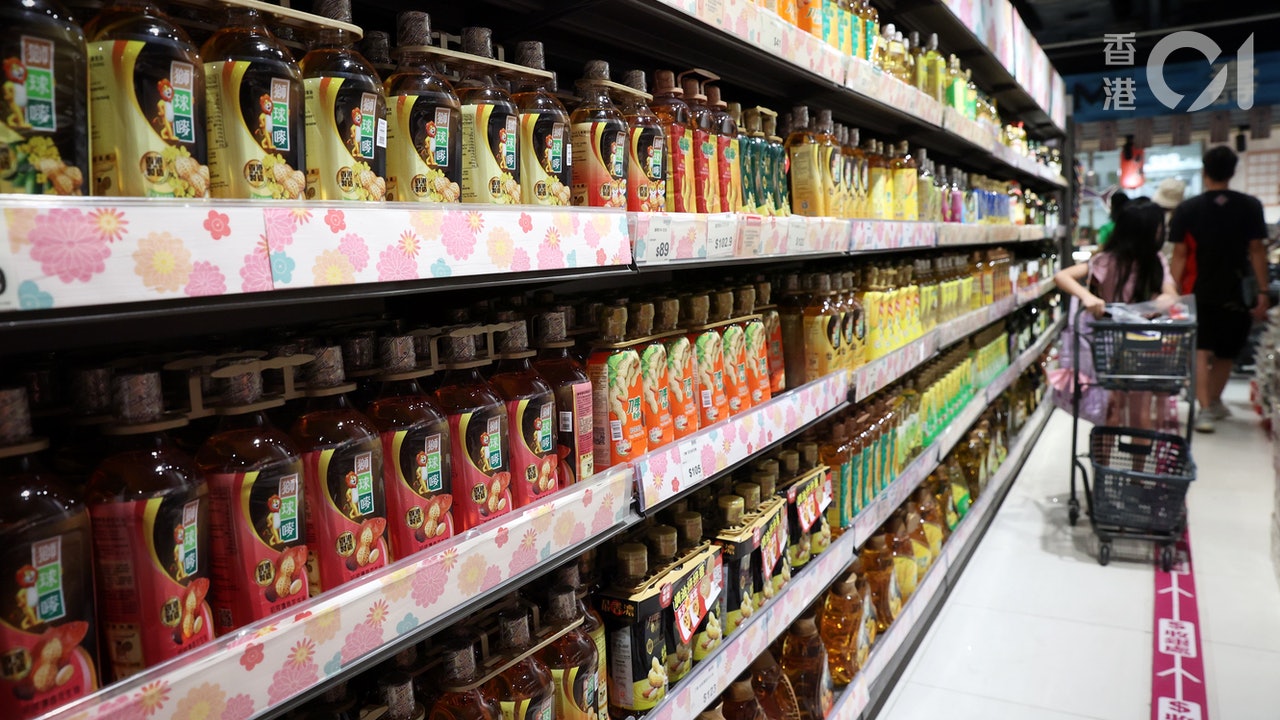Cooking oil is an indispensable cooking ingredient in the kitchen. The Consumer Council has tested 50 types of cooking oils on the market. Today (18th) published the results in the "Choice" monthly magazine, and found that about 60% of the genetic carcinogens glycidol were detected. Among them, there are two more content that exceeds the EU standard, namely SuperFoodLab's pure coconut oil (unflavored formula) and Yupin Huang's pure peanut oil, the latter is twice the standard.
In addition, another genetic carcinogen, benzo[a]pyrene, was detected in two edible oils, both produced by Yuwanjia. They are 100% pure corn oil and 100% pure peanut oil. The former slightly exceeds the EU standard, but It also complies with Hong Kong regulations.
The Centre for Food Safety also pointed out that all the samples are not harmful to health when eaten under normal conditions, and are in compliance with the law.
According to the Consumer Council, only three cooking oil samples were found to be free of contaminants in this test, namely Carbonell's extra virgin olive oil, Primo's sunflower oil and Showa's canola oil.
The Consumer Council described that the test results were unsatisfactory, and believed that it was not impossible to be free of contaminants during the production of cooking oil, and it was the responsibility of the manufacturer to ensure the quality and safety of the cooking oil.
The Council collected 50 types of common cooking oils from supermarkets and department stores, including 14 types of extra virgin olive oil, 2 types of olive oil, 2 types of avocado oil, 3 types of coconut oil, 2 types of camellia oil, and 2 types of sunflower seeds Oil, 2 Rice Bran Oils, 2 Grapeseed Oils, 3 Corn Oils, 6 Canola Oils, 1 Soybean Oil, 6 Peanut Oils, and 5 Blended Oils.
The test items cover food safety and nutrient content, and compare the accuracy of their nutrition labels.
The test results found that 29 samples were detected with the genetic carcinogen glycidol, and about 58% of the samples had a content ranging from 100 micrograms to 2,000 micrograms per kilogram. Among them, 1,100 micrograms was detected in SuperFoodLab's pure coconut oil (odorless formula). On the other hand, the pure peanut oil of Yupinhuang has the highest sample of 2,000 micrograms, both of which also exceed the EU standard of 1,000 micrograms per kilogram.
In addition, the test also found that Yuwanjia's 100% pure corn oil and 100% pure peanut oil contain benzo[a]pyrene, which is a genetic carcinogen. The content of the former reaches 2.1 micrograms per kilogram, slightly exceeding the EU per kilogram 2 micrograms standard.
In addition to the above two carcinogens, the Consumer Council pointed out that 30 samples, accounting for about 60% of the total, contained 3-MCPD esters (3-MCPDE).
Animal experiments have confirmed that long-term intake of excessive 3-MCPD can damage kidney function, central nervous system, and affect male reproductive system.
The Council continued to point out that according to the test results, the content of 3-MCPD in each sample ranged from 130 micrograms to 1,900 micrograms, and the highest was the blend oil from Carrington Farms, named Coconut & Avocado Cooking Oil Blend.
In addition, the test found that about 70% of the samples, i.e. 35 models, detected plasticizers, which is similar to the percentage results of similar tests in 2017.
The Consumer Council pointed out that five samples exceeded the CFS’s action level and the EU’s upper limit that year, but only one sample of extra virgin olive oil exceeded the standard in this test, which was Gallo’s My first olive oil Extra Virgin Olive Oil. The output amount is 11 mg/kg, which exceeds the CFS's action water and the EU limit (the content is not more than 9 mg/kg).
The Consumer Council mentioned that some studies have pointed out that plasticizers are endocrine disrupting substances, which may affect the development of the reproductive system if overeating for a long time.
The Consumer Council stated that only three cooking oil samples were found to be free of contaminants in this test, namely Aceite de Oliva Virgen Extra Extra Virgin Olive Oil from Carbonell and Organic Sunflower Seed Oil Cold from Primo. Pressed, and Showa's Light Canola Oil (Added Vitamin E).
The Consumer Council described that the test results were unsatisfactory, and believed that it was not impossible to be free of contaminants during the production of cooking oil, and it was the responsibility of the manufacturer to ensure the quality and safety of the cooking oil.
However, the Centre for Food Safety added that all the samples are not harmful to health when eaten under normal conditions and are in compliance with the law.
Consumer Council|The delivery quality of new buildings varies. Huang Fengxian reminds buyers to properly record the progress of the leaks 4 samples from the delivery company. One meal is too high. One meal has reached the daily intake. Consumer Council|In four cases, it is not suitable to use an oximeter. Natural Home is the strongest antibacterial













